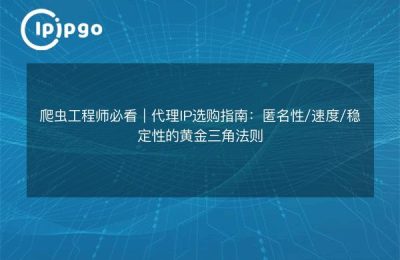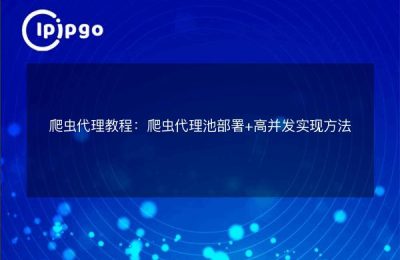
Hey everyone! Today I'm going to talk about a problem that causes a lot of headaches - slow proxy IPs for domestic crawlers. For those who like to do crawlers, often use proxy IP is a normal thing. However, if you encounter the problem of slow speed, it is really annoying ah! Then we do not talk a lot of nonsense, immediately to see how to solve it!
Tip #1: Choose a stable agency supplier
First, let's start with the importance of choosing a proxy provider. I believe we all know that the use of proxy IPs is becoming more and more common in China, and the providers are endless. But how to choose to ensure stable speed?
First of all, we need to find a reputable provider. This provider should have a good reputation and a professional team who will work hard to maintain the stability and speed of the server. Second, we have to pay attention to the server distribution of the provider. Usually, the more decentralized the proxy servers are, the more IPs they correspond to, and the faster our access speed will be. Of course, the price is also one of the factors to consider, and we have to make sure that it is cost-effective.
Tip #2: Choose the right agreement
Sometimes, the problem of slow proxy IPs is not entirely the provider's problem, but also related to the proxy protocols we use. Common proxy protocols are HTTP, HTTPS, SOCKS4 and SOCKS5 to name a few.
For some tasks that require particularly high speed, we can try using the SOCKS5 protocol. Compared with other protocols, SOCKS5 can provide higher security and better privacy protection while guaranteeing speed. Of course, different tasks require different protocols, so we can choose according to our own situation.
Tip #3: Optimize Proxy Requests
When using proxy IPs, there are also some tricks we can do to optimize requests and reduce slowdowns.
We can try to reuse connections using connection pooling techniques to reduce the overhead of frequent connection establishment and closure, thus reducing the overall request time.
In addition, we can also improve the request efficiency by means of multi-threaded or asynchronous requests. For some tasks, initiating multiple requests at the same time and then processing the return results in parallel can greatly improve the speed of the crawler.
Tip #4: Use Cache Wisely
Caching is an important tool to improve the speed of the crawler. In our request, we may find some results are duplicated, then we can cache these results, the next time you use directly read the cache to avoid re-requests, thus increasing the speed.
We can use some open source caching frameworks, such as Redis or Memcached, to help us implement caching features. In this way, we can increase the speed and reduce the request pressure on the target website.
Well, today on how to solve the problem of slow domestic crawler proxy IP, I will give you an introduction here. I hope that it will help you in the actual operation.
Remember, choosing a stable proxy provider, choosing the right protocol, optimizing proxy requests, and using caching wisely are all effective ways to increase crawler speed.
Of course, in the end, we still hope that you can comply with the relevant laws and regulations, the reasonable use of proxy IP, to protect their own interests and the interests of others.








